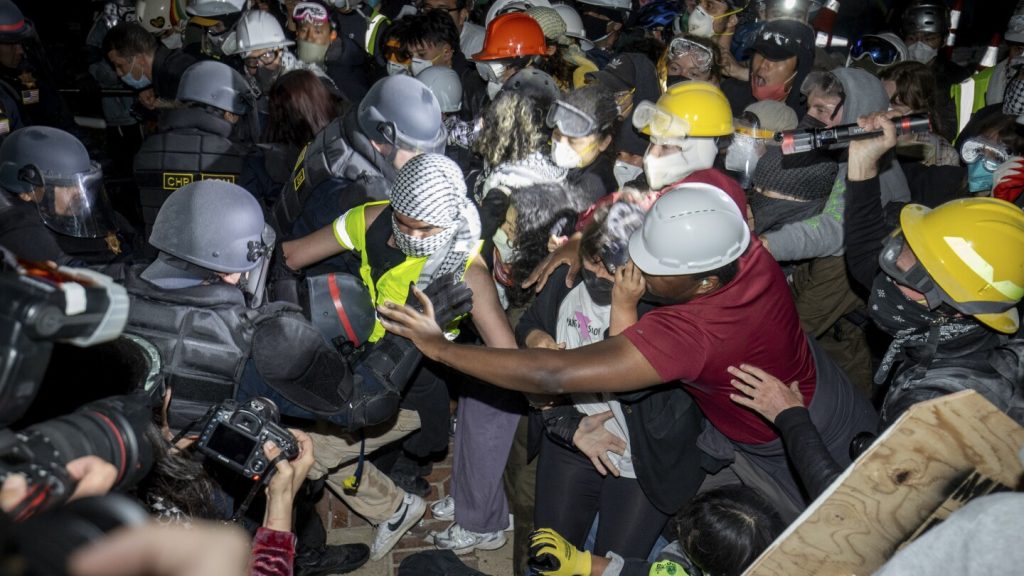Overnight, police arrested pro-Palestinian protesters on college campuses across the country, including UCLA, where chaotic scenes unfolded as officers in riot gear clashed with demonstrators. The protesters had defied orders to leave and formed human chains as police dismantled their encampment. Video footage showed protesters being arrested with their hands bound with zip ties, some sitting on the sidewalk as police walked around them. The crackdown on protesters calling for universities to stop doing business with Israel echoed actions taken against protesters during the Vietnam War.
At Yale University, four people were arrested after 200 demonstrators marched to the school president’s home and the campus police department. Protesters were accused of violating policy by occupying parts of campus without permission. Two of those arrested were students, and the protest group Occupy Yale claimed campus police were violent during the arrests. In Oregon, police worked to clear pro-Palestinian protesters from a library at Portland State University, where they had been occupying the building and causing damage.
Protests continued at UCLA, with police moving in to dismantle the encampment of protesters. Officers removed barricades, pulled down tents, and made arrests as protesters chanted and demonstrated. The presence of law enforcement was contrasted with the response on Tuesday night when counterdemonstrators attacked the pro-Palestinian encampment and law enforcement took hours to intervene. The protests have gained international attention, with coverage on Iranian and Israeli television networks.
At other schools across the U.S., protest encampments were cleared by police or closed up voluntarily, resulting in arrests and disruptions to campus life. At Columbia University in New York, police broke up a demonstration that had paralyzed the school, and at the University of Wisconsin in Madison, confrontations between police and protesters resulted in injuries and arrests. Some universities, like Brown University in Rhode Island, struck agreements with protest leaders to restrict disruption to campus life.
The nationwide campus demonstrations began in April to protest Israel’s offensive in Gaza, following a deadly attack by Hamas on southern Israel. Israel’s critics accuse it of using allegations of antisemitism to silence opposition, while Israel and its supporters label the protests as antisemitic. Organizers of the protests, some of whom are Jewish, maintain that it is a peaceful movement aimed at defending Palestinian rights. The protests have sparked a debate about the Israeli-Palestinian conflict and the role of universities in addressing social and political issues.
As the protests continue, authorities are facing challenges in maintaining law and order while upholding the rights of protesters to demonstrate. The clashes between protesters and police illustrate the tensions surrounding the Israeli-Palestinian conflict and the complex dynamics of activism on college campuses. The outcomes of these demonstrations could have far-reaching implications for the future of student protests and the role of universities in addressing social justice issues.


